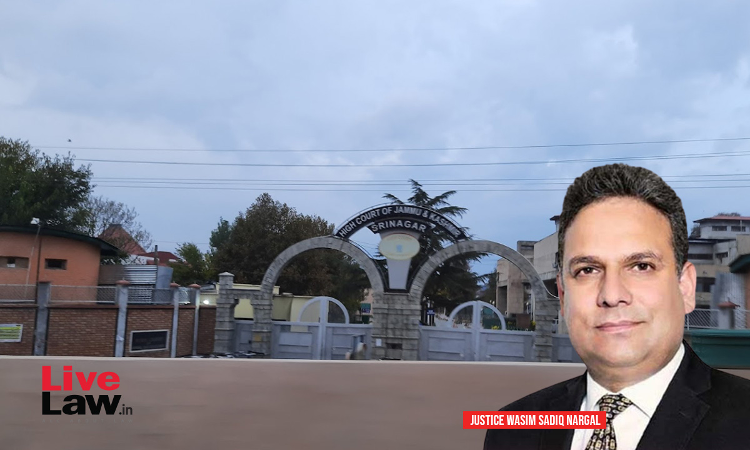- Home
- /
- High Courts
- /
- High Court of J & K and Ladakh
- /
- Limitation Rules Not Superfluous,...
Limitation Rules Not Superfluous, Save System From Anarchy: J&K High Court Dismisses Plea Challenging 39-Yr-Old Mutation Order
LIVELAW NEWS NETWORK
12 March 2025 4:25 PM IST
The Jammu and Kashmir and Ladakh High Court has dismissed a writ petition challenging a mutation order passed 39 years ago reiterating that an unending period for initiating legal remedies could lead to uncertainty and anarchy, upholding the principle that every legal remedy must have a fixed lifespan.“The Rules of Limitation are not superfluous or vestigial but are to be interpreted in...
The Jammu and Kashmir and Ladakh High Court has dismissed a writ petition challenging a mutation order passed 39 years ago reiterating that an unending period for initiating legal remedies could lead to uncertainty and anarchy, upholding the principle that every legal remedy must have a fixed lifespan.
“The Rules of Limitation are not superfluous or vestigial but are to be interpreted in a meaningful manner so as to save the system from anarchy. Law of Limitation fixes a life span for every legal remedy. Time is precious and the wasted time would never resist. So, a life span must be fixed for each remedy. Unending period for launching the remedy may lead to an uncertainty and consequential anarchy”, reasoned Justice Wasim Sadiq Nargal while accentuating significance of Limitation Laws.
The petitioner, Mohd Bashir, a 65-year-old resident of Poonch had sought to challenge Mutation which was attested in 1984, under Section 8 of the J&K Agrarian Reforms Act, 1976. Through this mutation, the land measuring four kanals was recorded in the name of respondent Mohd Rafiq. The petitioner contended that the mutation was illegally attested at his back despite his claim that he had been cultivating the land since the lifetime of his stepfather, Qadara, who had also allegedly executed a will in his favor.
The challenge to the mutation arose after an inordinate delay of 39 years, with the petitioner claiming that he was unaware of the attestation until recently when the respondent allegedly attempted to take forcible possession of the land. An appeal filed before the Additional Deputy Commissioner, Poonch (Commissioner under the Agrarian Reforms Act), was earlier dismissed for being time-barred.
Counsel for the petitioner, Advocate R.P. Sharma, argued that the delay in filing the appeal should be condoned as the petitioner was an illiterate individual who only recently became aware of the mutation order. He contended that the mutation was recorded without adhering to the procedural safeguards under Agrarian Reforms Rules, particularly Rule 14, which mandates following Standing Order No. 23-A. The delay was unintentional and should be condoned in the interest of justice, as the petitioner had been in continuous possession of the land, he added.
Justice Nargal, after examining the submissions, observed that rules of limitation are not meant to destroy rights but to ensure that legal remedies are sought within a reasonable time. He quoted the Supreme Court's decision in Ram Nath Sao to reiterate that "time is precious and wasted time would never revisit," emphasizing that allowing indefinite delays would lead to legal uncertainty and chaos.
The Court noted that the petitioner's application for condonation of delay was fundamentally deficient, as it failed to The Court noted that the petitioner's application for condonation of delay was fundamentally deficient, as it failed to mention the exact date when the petitioner became aware of the mutation and specify how the petitioner came to know about the order.
Further, the Court relied on the Supreme Court's decision in Sheo Raj Singh v. Union of India & Anr, wherein it was held that condonation of delay is a discretionary power and should be exercised based on an explanation rather than an excuse. The court also emphasized the difference between a genuine explanation and a mere attempt to deny responsibility.
The Court found no cogent reason to condone the delay and held that the principles of limitation must be upheld strictly to prevent misuse of legal remedies.
“.. on account of huge delay of 39 years 01 month and 20 days, deserves dismissal and the same is, accordingly, dismissed in limine”, the court concluded and dismissed the petition.
Case Title: Mohammad Bashir Vs UT Of J&K
Citation: 2025 LiveLaw (JKL) 86

